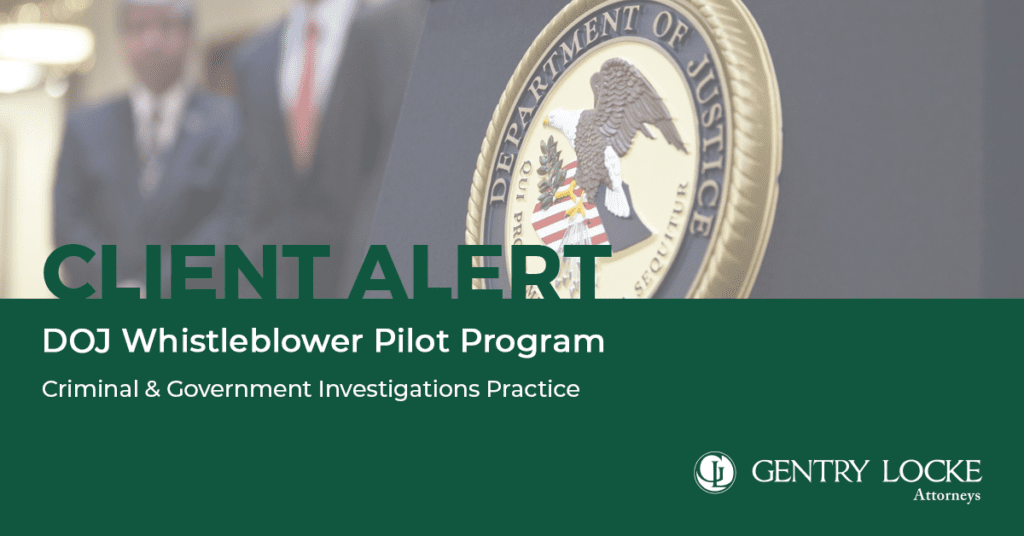Client Alert: DOJ Whistleblower Pilot Program

The Department of Justice (DOJ) Criminal Division recently unveiled its Whistleblower Pilot Program, signaling a pivotal shift in the landscape of corporate enforcement and accountability. The program is slated to take effect “later this year.”
Here’s why you should take notice:
1. A New Era of Incentives
The DOJ recognizes that people and corporations respond to incentives. The carrot-and-stick approach, previously seen in the DOJ’s Voluntary Self-Disclosure Program for corporations, now extends to individual whistleblowers.
In this spirit, the Whistleblower Pilot Program aims to reward individuals who come forward with significant corporate or financial misconduct that the government is not yet aware of.
2. Financial Rewards for Whistleblowers
Under the pilot program, individuals who provide credible information about “significant corporate or financial misconduct” can receive financial rewards. These rewards will be carved out of forfeiture funds obtained through successful prosecutions.
Importantly, payments will be made only after victims have been properly compensated.
3. Expanding the Regulatory Regime
Unlike many existing whistleblower programs (such as those run by the SEC and CFTC), the DOJ’s program reaches beyond heavily-regulated entities. It targets privately held companies that have, in the past, skillfully navigated safe harbor provisions.
This means that even companies not directly overseen by regulatory agencies like the SEC or CFTC must now pay closer attention to their compliance practices.
4. Four Key Criteria for Rewards
For the DOJ to pay a financial reward to a whistleblower under the pilot program, four specific criteria must be met.
First, the information provided must not already be known to the government. The DOJ has indicated that it is “especially interested” in information about financial crimes and both domestic and foreign corruption, including Foreign Corrupt Practices Act violations.
Second, the whistleblower must not be involved in the criminal activity.
Third, there must be no existing financial disclosure incentives (such as qui tam litigation under the False Claims Act) for the whistleblower.
And fourth, all victims must be compensated first.
5. Action Steps
The DOJ has indicated that the Whistleblower Pilot Program will formally start “later this year.” In the meantime, corporations will want to take the following action steps to prepare.
Review Internal Reporting Mechanisms: Ensure robust internal channels for reporting misconduct. Encourage employees to speak up internally without fear of retaliation.
Strengthen Compliance Programs: Regularly assess and enhance compliance policies, training, and monitoring.
Seek Legal Guidance: Consult with legal counsel to navigate the complexities of the program and protect your organization.
In summary, the DOJ’s Whistleblower Pilot Program demands vigilance. By proactively addressing compliance and fostering a culture of transparency, you can mitigate risk by ensuring that you find and report misconduct before the DOJ learns about it from a whistleblower.





